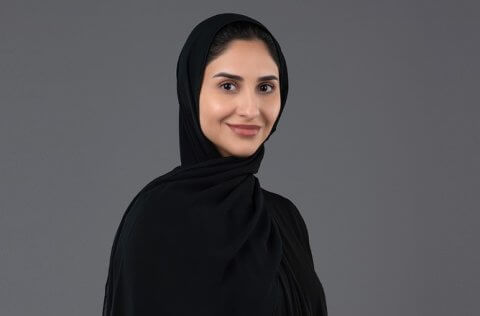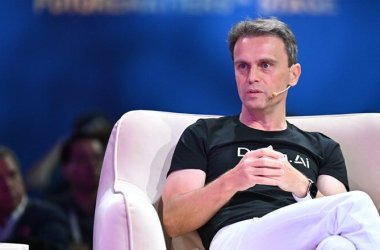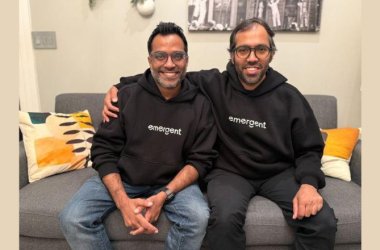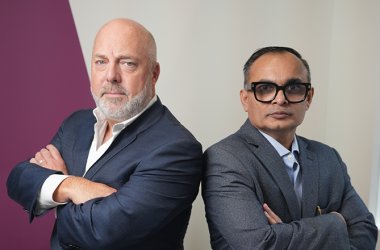CNME Editor Mark Forker sat down with Maryam Ahmed Hassani, co-founder and CEO of Zealous, is at the forefront of AI-native software development, and she explained how their mission is to democratise the technology in order to help people be able to capitalise on the opportunities provided by AI technology – and how Abu Dhabi can be a global launchpad for start-ups. 
Maryam Ahmed Hassani is committed to levelling the playing field in technology, enabling software developers and companies to launch products faster, reduce costs, and maintain high-quality software as they grow.
Following her graduation from NYU Abu Dhabi with a BA in Political Science, Maryam entered the innovation space as a strategy consultant at EY.
Some of her notable achievements include leading the Special Olympics Innovation Challenge and playing a key role in the MBRIF Accelerator Program.
Alongside Zealous, Maryam is the Head of Trends & Innovation at the Abu Dhabi Early Childhood Authority (ECA), where she oversees strategic projects focused on advancing the early childhood development field.
Zealous was co-founded by you in 2022, but can you give our readers a broader overview of the driving factors that inspired you to establish the company, and what is the mission statement of Zealous?
Our mission has always been to leverage AI to help people.
We started off looking to address a very tedious problem — making meaningful professional connections and creating serendipity using AI.
Although that resulted in two successful products, an AI-powered networking app, and an AI event assistant, we didn’t quite land on the right idea initially. It was very much a journey of refining and testing, and the only way to do that was to talk to users.
During one of our regular calls to go over our success metrics, including retention and frequency of use across features, my co-founder and I came to a humbling realization: while we are passionate about helping people in emerging markets achieve their objectives through intention-based networking, the challenges were more in the category of annoyances rather than problems people desperately wanted solved.
To make the inevitably difficult journey of building a start-up worth it, we needed to ensure we were solving a problem painful enough for a large enough market.
It was during this journey of talking to users and iterating the product that we ended up creating an in-house AI framework to help us develop products faster and more efficiently.
Particularly vital to us as a bootstrapped company, we were able to iterate our products at record speed without having to hire additional resources and developers.
Shifting from B2C to B2B was a significant pivot, but also a natural progression as the constant feedback loops led us there.
The mission in essence remains to empower and support people, and our unique AI framework drives that forward. We have just understandably pivoted to leverage a game-changing product we know can bring immense tangible value to software developers and companies around the world.
Zealous has branded itself as an AI code generation framework that enables developers to build products faster and more efficiently, but can you tell us more about your two flagship products the Zealous Social App and the Zaia Event Assistant, and what impact they have had for businesses and end-users that have adopted them?
Our products are available on the market for free, and people are still using them, but our attention is not laser-focused on them.
We still have daily active users. The Zealous social app, which employs AI to make networking more efficient, grew to about 1,200 users in a few months.
We started small, doing a soft launch for a focus group of 40 people at an in-house event where guests scanned a QR code and were asked to provide their “brutally honest” feedback.
After a few iterations, we attended a global tech event, Gitex, and gained 400 organic downloads in just three days.
The products are a direct result of feedback from the market; it helped us discover how a variety of users prefer to network and their intentions behind it. How a salesperson interacts versus a visiting entrepreneur is very different, for example.
You need to meet users where they are—people are always going to go to events—but how could they get more value from their time there? With Zaia, the AI event assistant, we addressed the challenge of remembering everyone you meet.
We doubled down on capturing that one-minute interaction more meaningfully, using computer vision to extract information from business cards or QR codes to provide suggestions on how best to engage with the person in real time.
The product also logs when and where you met each contact, their job description, and any notes you made on the day for easy recollection through AI search.
Following the democratization of AI through the introduction of public LLMs such as ChatGPT, the topic of Generative AI seems to have completely taken over the tech landscape. Can you give us your views on Gen AI, and is Zealous looking at developing their own Gen AI tools and applications?
Zealous is an AI-native company. Our AI framework is flexible so that you can use whichever LLM you prefer. For instance, if you’re a government entity or enterprise that requires high data security, our product provides complete transparency of code and can be set up on-premise.
We are very bullish on the AI space, and we’re banking on the fact that these emerging technologies are just going to get better with time.
Our framework is AI-native, which means that the AI itself is doing the coding and testing under the supervision of a software developer.
40-50% of software development time is spent on testing alone, and our aim is to free up that time by introducing the possibility of around-the-clock AI testing, with cost savings and code enhancements as by-products.
Our AI-native framework enables developers to automate the minuscule repetitive work so they can spend their time more meaningfully on strategy and solving complex problems.
A lot of tech analysts across the Middle East region have claimed that Abu Dhabi is on the cusp of being a global launchpad for start-ups, do you concur with this opinion, and if so, how has Abu Dhabi managed to foster such an environment that is allowing start-ups to thrive, what measures did it implement to enable this?
I believe there is still a long way to go, but there are clear steps in the right direction with the needed support and investment—the UAE invested $410 million in AI in 2023. The country has a strong willingness to work with global stakeholders, and we are fortunate enough to have that visionary leadership.
The Mohamed bin Zayed University of Artificial Intelligence (MBZUAI) is in Abu Dhabi, as part of the UAE’s “National Strategy for Artificial Intelligence 2031,” to become a world leader in AI by investing in people and industries that are key to its success.
In terms of attracting founders and start-ups, there are mechanisms in place that simplify building or setting up your business (i.e., free zones). Though personally, I believe the real value will be in getting a long-term commitment from founders who need more than just good business conditions.
Many founders look for a place they feel welcomed and where they can raise a family. Initiatives that position Abu Dhabi as not just a favorable business location but a place where founders can set down roots and contribute meaningfully to the ecosystem will truly differentiate Abu Dhabi from other start-up hubs.
As someone who is the CEO of a start-up company born out of Abu Dhabi, what advice would you give to other technology leaders like yourself starting out on their journey to build a tech start-up?
You are in for a fulfilling and challenging experience like no other.
As a founder, you need to be open to the journey, doing the work that needs to be done—talking to users constantly, being humble to everything they are saying, and deriving the information you need to build products they need and love.
Building a tech start-up teaches you core lessons from strategizing solutions to effective communication which every founding team needs to succeed.
Learning by doing is the greatest part of it, so be open and know it’s going to be hard but worthwhile if you give yourself the grace to be part of that journey.
Another big one is to remember, you are not alone. The point of having a co-founder is not just about diversifying your skill sets within the team but also because you need someone to bounce ideas off of and explore other perspectives to a problem.
Talk to more people, more founders, and experienced founders; there are a lot of first-time founder mistakes that sometimes have to be made to grow but it helps to learn from others. Just look at my founder journey with Zealous!
Finally, it’s been just over two years since Zealous entered the marketplace, how happy have you been with your growth in that period, and what can we expect from the company over the next 12 months?
I’m proud of the progress we’ve made over the past two years, discovering our ideal customers and achieving a strong product-market fit. Every twist and turn has been essential in bringing us to where we are today.
Since our significant pivot to our AI framework for code generation and testing, we have received tremendous interest from software developers and companies.
In the coming year, we aim to raise a round of funding to prepare our product for front-facing customers—software companies and developers—and to onboard our first enterprise customers, establishing our path to revenue generation.





